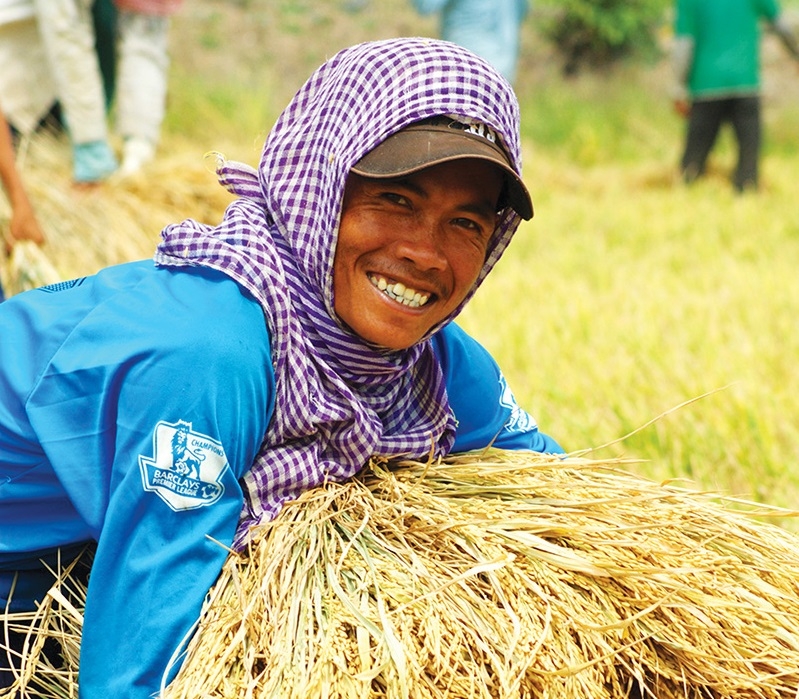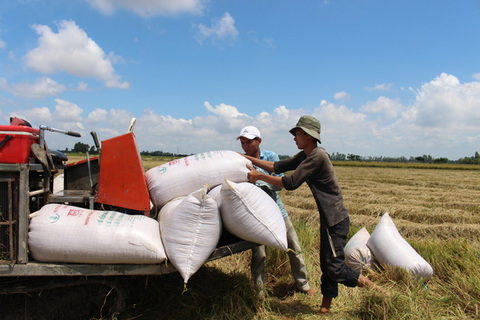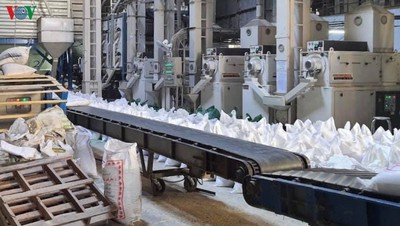 |
|
Halting rice exports to stabilise food supplies
|
On March 25, the Government Office issued Document No.2280/VPCP-NN on assessing the supply and situation in the rice export industry. Accordingly, Prime Minister Nguyen Xuan Phuc assigned the Ministry of Industry and Trade (MoIT) to lead and co-ordinate with the Ministry of Agriculture and Rural Development and the Ministry of Finance (MoF) to establish inspection teams to work with localities and exporters to monitor supply, reserves, and contract implementation.
This move was implemented after continuous but contradictory proposals from the MoIT and the MoF regarding suspending rice exports, to ensure that there is sufficient rice for the domestic market in the event that the coronavirus pandemic continues to spread.
Commenting on the government’s new move, Huynh Thanh Ngan, founder of Hapi Agricultural Organic Trading and Production Co., Ltd. told VIR, “It’s ok to stop signing new contracts, but forcing us to immediately renege on existing deals gives us difficulties.”
According to Ngan, although a decision has been made on exporting rice, it has pushed companies, dealers, and farmers into difficulties. Right now, her company has eight contracts, under which 3,000 tonnes of organic rice must be exported as scheduled in March and April, and 2,000 tonnes in May and June.
In addition to this, she has also signed offtake agreements with farmers for 10,000 hectares of rice from the summer-autumn crop with a deposit of VND5 million ($217.40), along with seed cost per hectare. “Within a week, we can negotiate and lose 10 per cent of contract revenue. But in the long term, without being able to give exact answers, we will have to compensate cancelled contracts and handle inventory, which will negatively affect farmers,” said Ngan. “Our product is organic, high-quality, Japanese brown rice, and the quality will be reduced by 50 per cent if we cannot export it within a month.”
Ngan elaborated on the current difficulties of working directly with organic rice farmers. “Unlike enterprises exporting non-organic rice, we cannot quit our contracts with farmers, because of issues of sustainable development and reputation.”
Meanwhile, Pham Thai Binh, general director of Trung An Hi-tech Farming JSC, said that the government’s fresh move has reduced the price of rice by VND300 (1 US cent) per kilogramme. “We have prepared for the expense of having packed goods returned and maintaining our inventory. If enterprises are forced to stop exporting rice, we will have to completely break our plans of sustainable export and production, to which we have been committed for many years,” Binh told VIR.
Regarding food security, Binh stated that it does not only mean having enough output to meet the needs of domestic consumers in all circumstances, the output also needs to be sold at an appropriate price in proportion to the farmers’ labour and the true value of rice.
“The last many years proved that Vietnam has never lacked food. Moreover, over the years, to find markets for the entirety of its output, Vietnam has to export 6.5 million tonnes a year,” he said. “Even the pandemic and climate change have not impacted rice fields, as areas of the Mekong Delta have successfully adjusted planting times so the output has been much higher than in 2019.”
According to the MoIT, preliminary statistics from the General Department of Vietnam Customs showed that in the first two months of 2020, rice exports reached nearly 930,000 tonnes, earning more than $430 million, a rise of 30.5 per cent in volume and 38 per cent in turnover, compared to the same period in 2019. In some markets, export volume increased sharply, ensuring that the domestic price of rice grew by around 20-25 per cent. Exports to China reached more than 66,000 tonnes in total, equivalent to $37 million. However, the largest market for Vietnam in the first two months of the year has not been China but the Philippines, which accounts for 36 per cent of the total turnover or 357,000 tonnes, equivalent to $155 million, up 13 per cent in volume and 23 per cent in turnover on-year.
Next is Iraq, with exports of up to 90,000 tonnes, equivalent to $48 million. Ranking third is Malaysia, up 149 per cent in volume and 128 per cent in turnover, accounting for nearly 10 per cent of total volume and 9 per cent of the total export value of Vietnamese rice.
|
Vietnam currently has 3.8 million hectares of rice production area with the output of 46-49 million tonnes and an export volume of seven million tonnes. As of now, the domestic rice production is balanced. Last year, Vietnam exported 6.37 million tonnes at a value of $2.8 billion. The Philippines was the largest buyer, importing 2.13 million tonnes, whereas China ranked third with 477 million tonnes. Up to March 24, rice exporters transported goods from Ho Chi Minh City and the Mekong Delta provinces to the northern port city of Haiphong for export. According to the announced data by the MoIT, by late March 26, around 180,000 tonnes of rice have been transported to ports for exporting. VIR |
Bao Ngoc

Kien Giang, Long An provinces want rice export ban lifted
The Mekong Delta provinces of Kien Giang and Long An have asked the Government to reconsider its temporary ban on rice exports, saying it would discourage farmers from growing the autumn-winter crop this year.

Temporary suspension of rice exports given thumbs-up
The government's policy of ensuring national food security by temporarily halting the export of rice has been given consent from the majority of businesses and people in the Mekong Delta.
 The Vietnamese government has asked rice exporters to temporarily suspend signing new export contracts in a bid to increase stockpiles and ensure the country’s food supply.
The Vietnamese government has asked rice exporters to temporarily suspend signing new export contracts in a bid to increase stockpiles and ensure the country’s food supply.